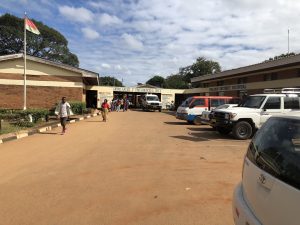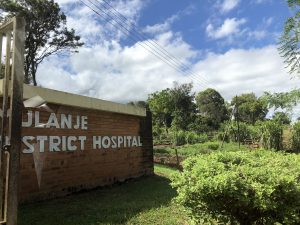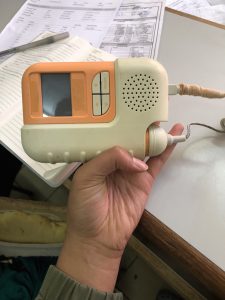“So, tell me more about Hinduism and how your family practices it”, Mikah asked me as we were both struggling to cut a piece of bone chicken with a fork and knife. Startled, I sat back in my chair for a second. A young college student like I, Mikah and I met at the Rice 360 faculty and student dinner in my first week here. He explained that he was religious but admitted that it is often difficult to practice when he is away from home and something that he wishes he could better at. I was surprised at how this fellow student who I had just met maybe 30 minutes ago was able to ask such insightful questions that delved beyond the usual academics and college life. We went from talking about religion and race to discussing how we both deal with homesickness during the semester. There was a refreshing depth and complexity to our dinner conversation that I was beginning to see in many of my interactions with the Malawians and Rice 360 staff here. I realized just how humble all of the Malawians I have interacted with are and how comfortable they are with the idea of imperfection. They are able to open up about their own vulnerabilities. Back home, I have noticed how rooted our culture is in chasing perfection and we have a hard time facing our shortcomings. It is inspiring to be able to observe and I hope I too will able to delve into how I perceive myself and others and be more confident in discussing weaknesses and areas of growth.
As the week went on, I was cognizant of this phenomenon at the different district hospitals we visited. In Malawi, there are two large central hospitals: Queen Elizabeth Central Hospital in Blantyre where we are and Kamuzu Central Hospital in Lilongwe, which is the capital city about 4 hours away from where we are. These hospitals are where the most complicated surgeries, deliveries, and cases are seen and where a very small percentage of the population ends up going. Surrounding these central hospitals, there are district hospitals. These district hospitals are smaller in size, have fewer human and capital resources, and where most Malawians go if they have a serious health concern. When we visited district hospitals, we focused mainly on the maternity and the nurseries as the wards we wanted to talk to the nurses and staff in and gain as much insight into how they deliver healthcare. These district hospitals rarely have even a single MD so nurses and students end up taking on many of the duties that a doctor would perform back in the US. We asked the nurses on staff questions and wrote down as many things as we could keep up with.
I again noticed that these nurses had a depth to them that is not only hard to come by and but also difficult to uncover in the US. After having only met them for 15-20 minutes, they were able to open up to us about the hardships of healthcare delivery in Malawi. For example, in the labor ward, where protocol states that nurses should check the fetal heartbeat during labor every 30 minutes, when there are only 2-3 nurses for the entire labor ward who must perform deliveries, check all the mothers vitals on a rotation and all of the infants vitals on a rotation, they have a hard time doing everything. In addition to the lack of human resources, they explained that they do not have a working electronic fetal doppler to check the fetal heartrate during labor and so they must use a manual one which is harder and more time consuming to use.
Issues like these were common among all the maternity wards and nurseries we visited and while it was hard to see their hardships and I ended many of the visits to the district hospitals feeling somewhat defeated, seeing the raw truth of healthcare here and its successes and weaknesses was so important. I could not be more grateful to the nurses and students who took time out of their already busy schedules to answer our questions without a single complaint. They always did so happily and did so honestly. I am so excited to continue learning and digging deeper into the stories of the nurses and people here.
Warm Wishes,
Sajel


